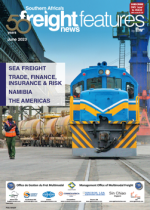In a quietly escalating conf lict with far-reaching consequences, South Africa and the United States (US) are locked in a slumbering fight over their diverging stances on Russia. This ongoing geopolitical rift between the two nations has begun to impact trade relations, sending shockwaves through South Africa’s economic landscape.The differing approaches towards Russia’s international policies are at the heart of the matter. While the US has taken a firm stance against Russia, imposing economic sanctions and diplomatic pressure, South Africa has adopted a more conciliatory tone to maintain productive relations with both superpowers. This nuanced positioning has ignited a simmering tension between Pretoria and Washington, causing an unresolved unease in the bilateral relationship.South Africa — which has abstained from voting on UN resolutions on Russia’s war in Ukraine — has maintained that it is impartial.President Cyril Ramaphosa said the non-aligned position did not favour Russia over other states. Conversely, the US has been less diplomatic about its feelings toward South Africa and Russia. The US ambassador to Pretoria, Reuben Brigety, recently said that the US believed weapons and ammunition had been loaded onto a Russian freighter that docked at a Cape Town naval base in December. While he swiftly apologised for the remarks and reaffirmed the strong partnership between his country and South Africa, it has become clear that tensions are running high.“South Africa is playing with fire,” said economist Francois Fouche from the Centre for African Management and Markets at the Gordon Institute of Business Science. “We currently have a seat at the global economic table, and we should be making the most of the opportunity rather than digging an economic grave for ourselves.”He said trade between South Africa and the US surpassed trade with Russia.“South Africa’s trade with Russia is 13 times smaller than that with the US. We are not in a position to shun the US. We are dependent on US aid, investment, trade and tourism. If we continue with the current hostile stance, we take the risk of being locked out of this market or face a surge in non-tariff barriers on our US exports. Our duty-free access to this market could be revoked.”He said with the African Growth and Opportunity Act (Agoa) up for renewal in 2025, South Africa was best advised not to provoke the US more than necessary.A substantial portion of South Africa’s exports to the US comprises minerals and precious metals, which account for almost 50% of its total exports. Additionally, mainly reliant on Agoa, automotive exports contribute significantly to SA’s trade value. The potential loss of this could have far-reaching consequences for the subsidised automotive industry. Already the US Congress, particularly Republicans, have expressed concerns about South Africa’s trade relations.

